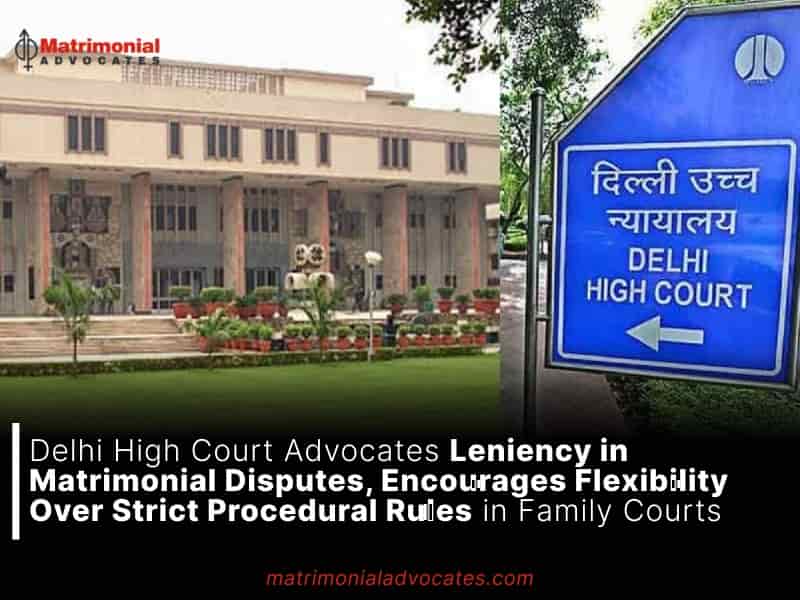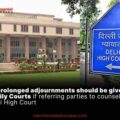
In a recent ruling, the Delhi High Court granted approval to a wife’s petition challenging the termination of her right to cross-examine her husband during divorce proceedings. The court underscored the importance of Family Courts striking a delicate balance between expediting cases and ensuring equitable opportunities for both parties to present their arguments.
Justice Navin Chawla proposed that Family Courts should exercise more leniency compared to commercial disputes, acknowledging the delicate nature of matrimonial disputes. Matrimonial matters involve intricate relationships, demanding a nuanced and sensitive approach from the court.
Upon thoroughly examining the case’s factual background, Justice Chawla determined that the petitioner was not solely responsible for the delay. Given the matrimonial context, he argued that the Family Court could have taken a more lenient stance, opting for specific conditions rather than outright closing the petitioner’s right to cross-examine.
The petitioner initiated the petition in response to the Family Court’s decisions, which closed her right to cross-examine her husband and other witnesses. She contended that the delays were due to various factors, including the impact of the COVID-19 pandemic, her children’s exams, her father’s heart attack, and challenges in noting the correct hearing dates.
While acknowledging the petitioner’s occasional adjournments and delays in cross-examining the respondent, the court recognised the primary role played by the COVID-19 pandemic in causing delays. The attribution of the entire delay to the petitioner by the Family Court was deemed an error.
Concerning the second order that discharged certain witnesses and closed the petitioner’s right to cross-examine them, Justice Chawla expressed dissatisfaction, stating that the Family Court should have allowed the petitioner at least one opportunity to cross-examine these witnesses. The court criticised the lack of exploration of alternative options before closing the petitioner’s right.
As a result, the Delhi High Court permitted the petitioner to cross-examine her husband and other witnesses with the condition of a cost deposit. Justice Chawla, however, cautioned that the petitioner would not be entitled to further leniency from either the Family Court or the High Court.





